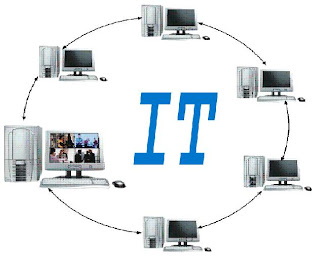The traditional role of IT
pros is one of task-based troubleshooting: front-line employees, department
heads and executives come to admins with problems they needed solved, and get
placed in the queue. Issues are prioritized, scheduled, balanced, and dealt
with on an as-needed basis, leaving little time for innovation and in many
cases leaving “smaller” problems unsolved. But thanks to the rise of cloud
computing and mobile devices, non-IT areas of companies are starting to solve
their own problems, and this means a shift in the role of information
technology professionals.
A Changing Landscape
According
to a February 1st PC
Advisor article, reporting on
the 4th annual Deloitte Tech Trends Report, five key trends now affect
businesses: the cloud, mobile beyond smartphones and tablets, cyber defense,
social media, and analytics. None of these trends fall neatly into established
IT categories and reside almost entirely off-premise, meaning the “create a
ticket and wait for service” method won’t work. Big data analysis, real time
social media interaction, the need to balance mobile access demands against
security – all are time sensitive, and are forcing IT to adapt their
methodology.
The
result is an IT pro that looks more like the cloud than the server stack:
agile, flexible, and fast. But while technology trends are helping to inform
this change, what’s truly driving adaptation is the increasing rise of
front-line employee efficacy.
The New Paradigm
A
recent Cloud
Tech article points out the
simple truth “the biggest thing standing in the way of enterprise IT cloud
adoption is IT’s unwillingness to accept that business units are already
adopting the cloud.”
In a
shift away from the traditional, these business units now drive tech adoption,
in large part by using technology and cloud-based applications, whether IT pros
want them to or not. Frustrated by problems that don’t get solved, and what
they perceive as antiquated access restrictions, employees circumventing
security measures – and aren’t shy about letting IT know it. Admins may be
called in at the tag end of a project, but more for information than
consultation; more for dictation than permission.
IT
professionals, in turn, have two choices: adapt or fossilize. Those stuck in
the rut of ordering instead of asking will find their departments shrinking,
while those willing to evolve their role can find great success as advocates
for new technology. In addition to technical skills, the next generation of IT
pros must also possess an atypical tech quality: people skills. Again – just
like the cloud – admins must consumerize, adapting the way they deliver
service, considering other departments as customers instead of as items on a
list.
The
result is an IT admin willing to advise rather than admonish – and with the
demise of problem queues, able to focus on forward-facing business issues like
big data mining and application performance instead of simply troubleshooting
technology.
















0 comments:
Post a Comment